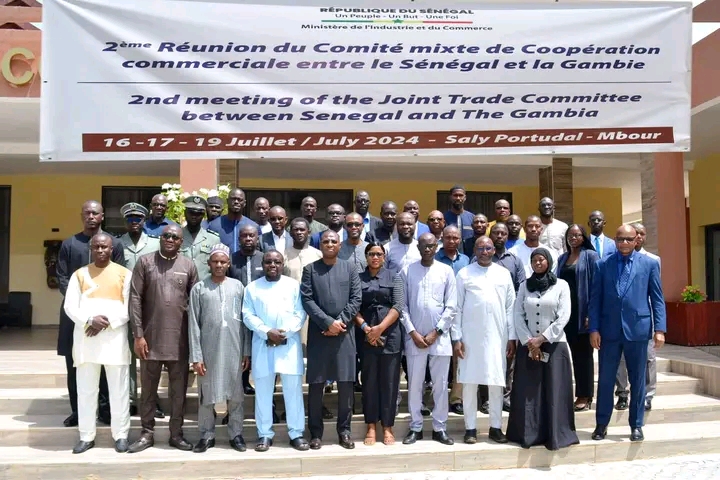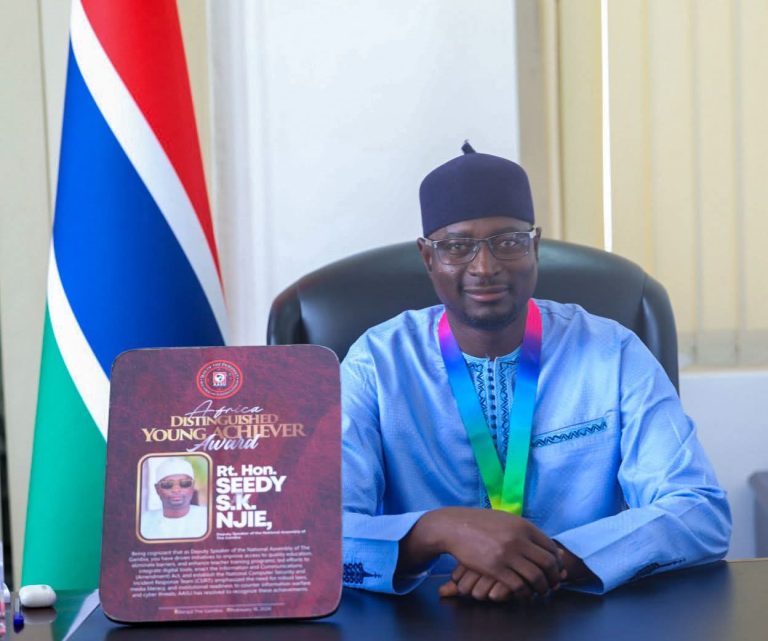
Mr. Lamin Dampha, Permanent Secretary of the Ministry of Trade, Industry, Regional Integration and Employment reiterated that The Gambia and Senegal share more than just a border; we share a rich history, cultural ties, and an unwavering bond that embodies the ideology of “two countries, one people.
“Our interconnectedness is a testament to the strength and resilience of our people, who have consistently demonstrated unity in diversity. The people of our two nations have long depended on the free flow of goods, services, and people across our shared frontier and as the Permanent Secretary, I am deeply committed to strengthening the economic ties between our two beloved nations,” he told stakeholder present at the 2nd meeting of the Joint Committee between Senegal and The Gambia in Saly Portudal-Mbour, Senegal.
PS Dampha noted that this cooperation has been especially vital in the areas of trade and transit and their two countries have worked hard to facilitate the seamless movement of goods and services through their respective territories. Initiatives like the ECOWAS Trade Liberalization Scheme, the Inter-State Road Transit Scheme, and the Senegambia Bridge Project have all been important steps forward.
While our nations enjoy a robust trading relationship, he told the stakeholders that we must acknowledge and address the challenges that impede our progress. Issues such as tariff barriers, non-tariff barriers, and regulatory discrepancies, he said, hinder the free flow of goods and services between their countries. According to him, it is imperative that they work collaboratively to harmonize their trade policies, streamline customs procedures, and eliminate barriers that stifle economic growth.
“Transit issues present another significant challenge. Inconsistent transport regulations, poor infrastructure, numerous checkpoints, and border delays create inefficiencies that affect not only our trade but also our economies at large. We must enhance our transit infrastructure, establish standardized protocols, and improve our border management systems to ensure smooth and efficient transit of goods,” PS Dampha noted.




